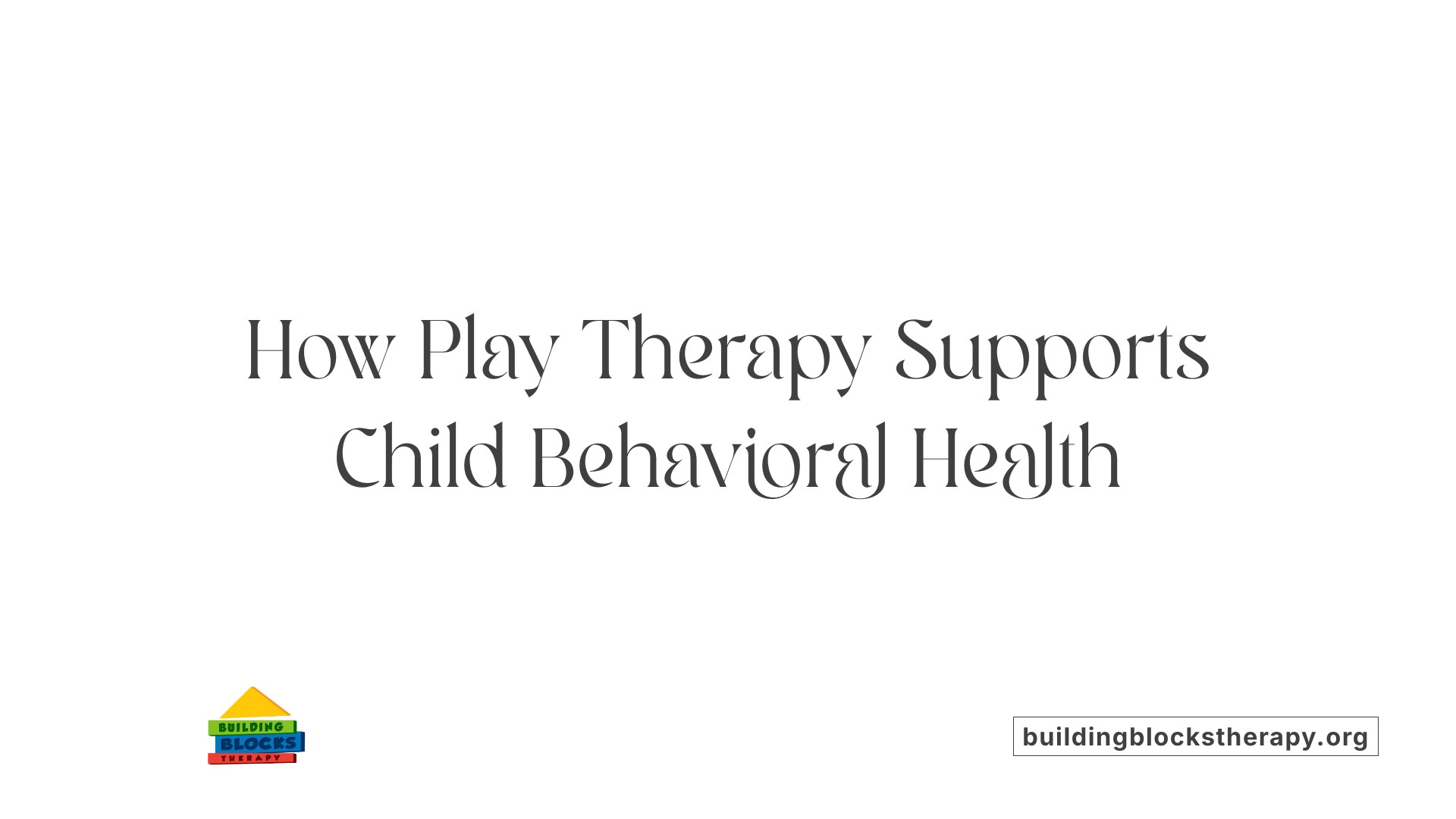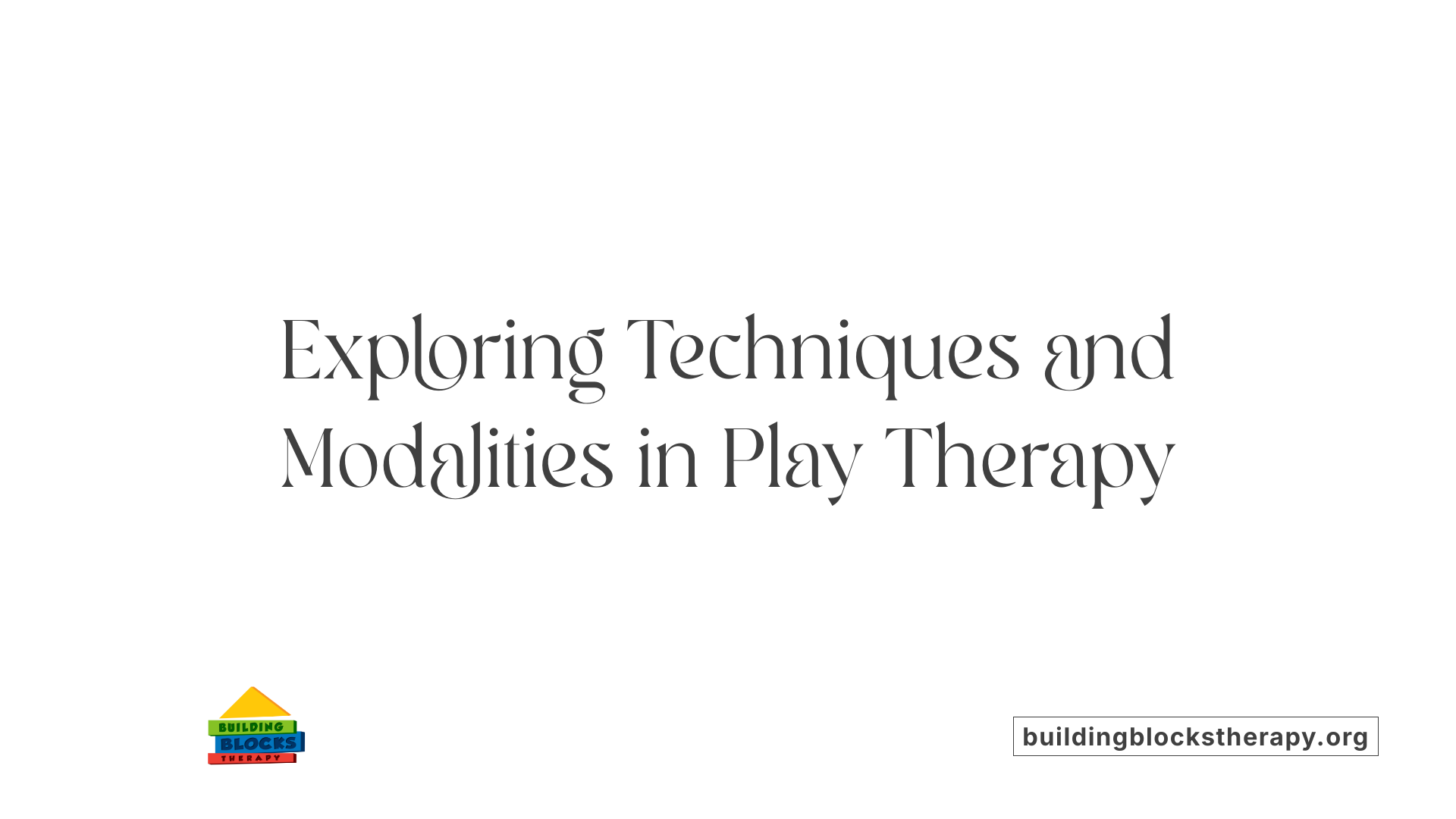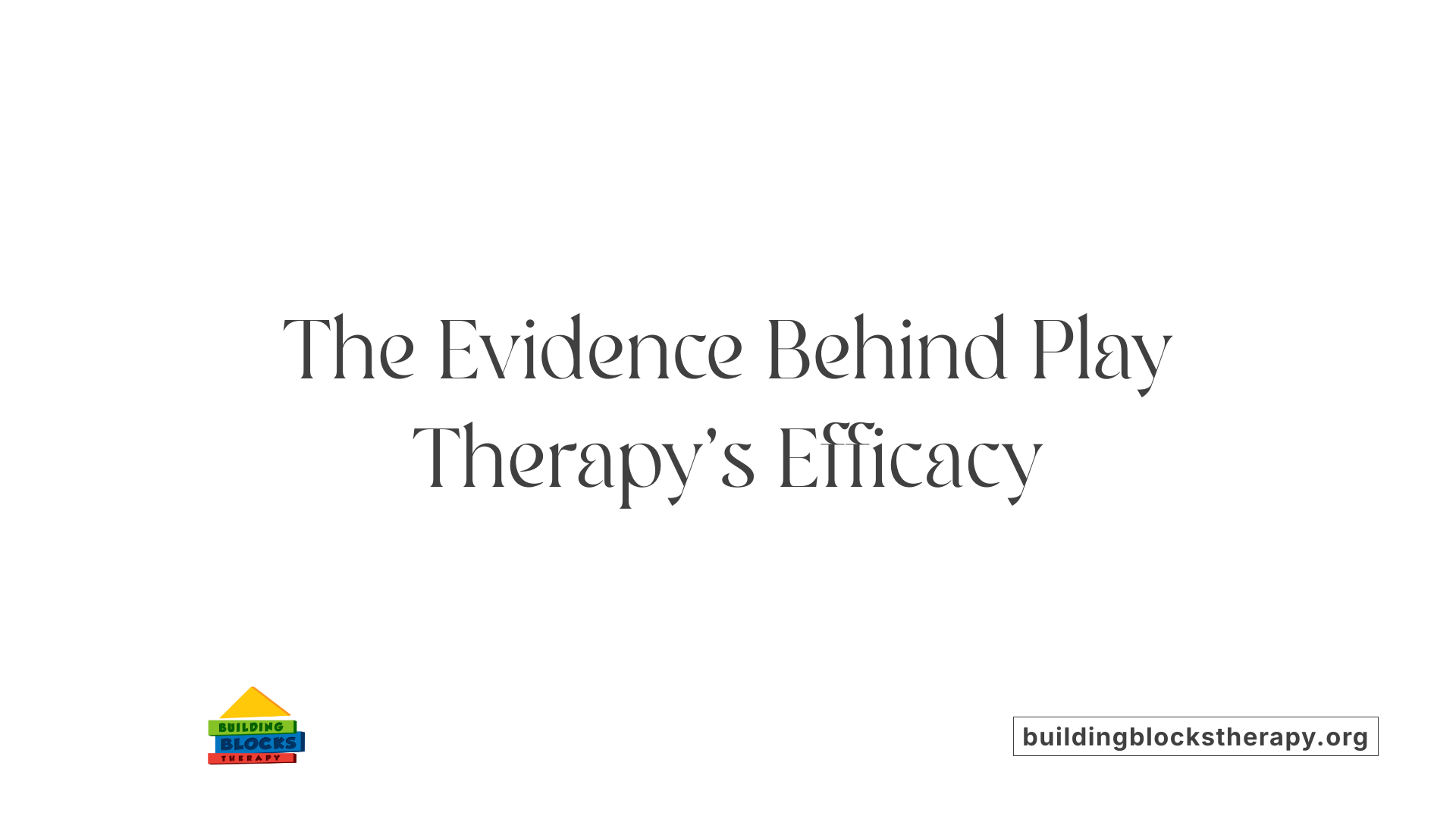Understanding Play Therapy's Impact on Children’s Well-being
Play therapy is a structured, evidence-based psychological intervention that leverages the natural language of children—play—to address behavioral and emotional challenges. It involves trained practitioners creating a safe, engaging environment where children can freely express their feelings, explore their inner worlds, and develop essential life skills. Today, play therapy stands as a vital component of comprehensive child mental health treatment, especially for preschool and school-age children navigating complex emotions, developmental changes, and trauma.
The Foundations and Principles of Play Therapy
 Play therapy is built upon a solid foundation of psychological theories and core principles that prioritize safety, trust, and empowerment for children.
Play therapy is built upon a solid foundation of psychological theories and core principles that prioritize safety, trust, and empowerment for children.
Theoretical foundations encompass several influential perspectives. Psychoanalytic theories, inspired by figures such as Sigmund Freud and Melanie Klein, view play as a window into the unconscious mind. Through symbolic play, children can express repressed thoughts and feelings they might not verbalize, allowing therapists to gain insight and facilitate emotional healing.
Humanistic approaches, notably Carl Rogers’ client-centered therapy, emphasize creating a warm, non-judgmental environment. This setting encourages children to express themselves freely and authentically through play, fostering self-awareness and self-acceptance.
Developmental theories, including Jean Piaget’s cognitive development model, recognize play as vital for intellectual and emotional growth. As children develop, their play becomes more complex, reflecting their evolving understanding of the world and their internal emotional states.
Attachment theory also plays a critical role in shaping play therapy. Secure attachment relationships help children feel safe and supported, enabling them to explore their feelings through play with trust and confidence.
The core principles guiding play therapy focus on maintaining a safe, trusting environment where children feel empowered to lead their sessions. This is achieved through child-centered and child-led approaches, where the child's interests, choices, and pace are prioritized.
In child-centered and non-directive play therapy, the therapist acts as a gentle observer and facilitator, allowing children to choose activities that resonate with their feelings and needs. This approach encourages self-expression, internal control, and emotional resilience.
Together, these foundations and principles help create an effective and nurturing space for children to explore complex emotions, process experiences, and develop essential social and emotional skills.
The Role and Benefits of Play Therapy in Child Behavioral Treatment

What is the role of play therapy in treating child behavioral issues?
Play therapy is a structured and evidence-based approach that employs play and creative activities to help children address emotional and behavioral challenges. It provides a safe, nurturing environment where children can express themselves nonverbally, explore feelings, and work through issues such as aggression, defiance, ADHD, and trauma.
By observing children during play, therapists can interpret underlying emotional conflicts and develop tailored interventions. Techniques such as role-playing, art, sand tray, and storytelling enable children to articulate feelings that may be difficult to verbalize. This method not only helps in managing external behavioral problems but also nurtures emotional regulation and resilience.
Different approaches like child-centered, nondirective play, and cognitive-behavioral play therapy focus on specific goals such as promoting social skills, reducing anxiety and depression, and improving communication. For instance, children with trauma may reenact experiences through symbolic play, aiding in emotional processing.
Research indicates that play therapy significantly reduces symptoms of behavioral issues, including aggression and defiance, and also diminishes emotional problems like anxiety and depression. It fosters problem-solving abilities, enhances self-esteem, and encourages positive social interactions.
Overall, play therapy’s versatile and supportive nature makes it a vital intervention in child mental health, helping children develop healthier coping strategies, improve emotional well-being, and build resilience for future challenges.
Techniques and Modalities Used in Play Therapy

What techniques and methods are commonly used in play therapy for children?
Play therapy employs a variety of creative and interactive techniques to help children express themselves and work through emotional and behavioral issues. One of the most fundamental tools is the use of toys, art supplies, storytelling, and role-playing activities. These play mediums serve as symbolic language that children naturally use to communicate complex feelings.
Therapists often incorporate specialized approaches such as sand tray therapy, where children create scenes in a sandbox using miniature figures, allowing for visual and tactile exploration of inner experiences. Puppet-assisted therapy is another technique that enables children to act out scenarios or express feelings through characters, fostering connection and understanding.
Structured activities, like emotion balls, help children identify and communicate feelings such as anger, sadness, or fear. Unstructured play, on the other hand, provides space for spontaneous expression, which can reveal underlying issues or hidden emotions.
More advanced techniques include magic wand play, which encourages children to envision positive change or regulate emotions during imaginative scenarios. Strategy games and communication exercises support problem-solving and emotional regulation.
Therapists often tailor these activities to suit the child's age, developmental stage, and specific needs. Child-led sessions foster a sense of safety and self-discovery, allowing children to direct their play while the therapist observes and gently guides the process.
In addition to these activities, methods like storytelling and family-related assessments such as genograms help children explore relationships and familial issues within a safe environment. These techniques collectively create a supportive space where children can process trauma, develop social skills, and build resilience.
Impact of Play Therapy on Emotional and Social Development

How does play therapy support emotional expression and regulation in children?
Play therapy is a powerful approach that helps children articulate and manage their emotions effectively. It creates a safe space where children can symbolize their feelings through various playful activities, such as art, role-playing, and storytelling. This symbolic expression allows children to explore complex emotions like fear, anger, depression, or anxiety that they might not yet have the words to describe.
Therapists utilize techniques like sand tray therapy, puppet-assisted play, and narrative storytelling to help children reenact and process life experiences in a non-threatening way. These activities serve as rehearsal for dealing with real-life challenges, promoting coping skills and emotional resilience.
Importantly, the fundamental principles of play therapy emphasize empathy, unconditional acceptance, and building a trusting relationship. This supportive environment encourages children to open up and feel understood, fostering their ability to regulate emotions.
Research indicates that engaging in play activates brain pathways involved in emotional processing and problem-solving. As children observe and interpret their play, they develop better self-awareness and emotional understanding. Through consistent play therapy sessions, children learn to identify, express, and control their emotions, which results in improved emotional regulation and social skills.
Benefits seen in emotional and social growth include:
- Better anger management and reduced temper tantrums
- Decreased anxiety and trauma symptoms
- Increased confidence and self-esteem
- Enhanced ability to empathize and develop healthier relationships
- Improved problem-solving and coping strategies
These improvements not only help children navigate their internal world but also positively impact their interactions with peers, family, and teachers, supporting overall social and emotional wellness.
Research Evidence and Effectiveness of Play Therapy

How effective is play therapy, and what impact does it have on children's mental health?
Play therapy is supported by extensive research showing it is a powerful, evidence-based approach to promoting emotional and behavioral well-being in children. Many studies and meta-analyses, including those compiling over 100 empirical investigations, demonstrate that play therapy produces significant positive changes in young clients.
Research indicates that play therapy can lead to moderate to high improvements in managing emotional challenges such as anxiety, depression, and behavioral problems. Children engaging in this therapy often show reductions in symptoms like fear, aggression, and withdrawal. Additionally, play therapy fosters the development of social skills, enhances self-esteem, and improves emotional regulation.
Particularly effective with children aged three to 12, play therapy is also adaptable for children facing transition stressors like divorce, relocation, or trauma. Techniques such as cognitive-behavioral play therapy (CBPT) have been tailored to target specific issues, teaching children new coping strategies through structured play.
Active participation of parents in the therapy process further boosts outcomes. Parental involvement helps reinforce emotional skills at home, supports behavior change, and strengthens the parent-child bond.
Overall, the substantial body of evidence confirms that play therapy significantly impacts children’s mental health by making it easier for them to articulate feelings, process difficult experiences, and build resilience. It enhances social interactions, problem-solving skills, and emotional intelligence, leading to long-term benefits in their psychological development.
Application Scope and Adaptability of Play Therapy
In what ways is play therapy applied to address various behavioral and emotional problems?
Play therapy is a versatile intervention that helps children work through emotional and behavioral challenges by using play—a natural language for kids. It allows children to express feelings they may not yet have words for, such as anger, sadness, or anxiety. Therapists create a safe environment where children can engage in activities like storytelling, role-playing, art, and using toys or sand trays.
This approach is especially effective for addressing issues such as anxiety, depression, trauma, attention-deficit/hyperactivity disorder (ADHD), aggression, and social difficulties. Children facing family changes like divorce or grief, or those with developmental delays, can also benefit significantly.
Different methods within play therapy, such as child-centered, Adlerian, and cognitive-behavioral play therapy, focus on varying goals—ranging from building emotional resilience to teaching specific coping skills and social behaviors. These approaches foster emotional regulation, problem-solving abilities, and social skills while enhancing self-awareness.
Research strongly supports the effectiveness of play therapy, showing reductions in problematic behaviors and improvements in communication and overall emotional health. Parental engagement often plays a vital role; parents are involved through regular updates and sometimes participate in therapy sessions to reinforce the skills learned.
Overall, play therapy's adaptability makes it suitable across various settings—including schools, clinics, hospitals, and community centers—ensuring children receive customized support that matches their developmental stage and specific needs.
Practitioner Qualifications, Ethical Standards, and Future Directions
What qualifications do play therapy practitioners typically have?
Play therapy practitioners usually possess academic degrees in mental health disciplines such as psychology, social work, counseling, or psychiatry. Most are licensed mental health professionals, which ensures they meet rigorous educational and ethical standards.
In addition to their degrees, these specialists undergo specialized training focused on play therapy techniques, ethical guidelines, and developmentally appropriate interventions. Such training is often provided through accredited programs or workshops, many of which are approved by organizations like the Association for Play Therapy (APT).
A common credential sought after in this field is the Registered Play Therapist (RPT). Achieving RPT status requires practitioners to accumulate clinical experience, complete supervised practice in play therapy, and engage in ongoing continuing education. For specific modalities like Child-Centered Play Therapy (CCPT), additional certification involves dedicated coursework, supervised sessions, and passing competency assessments.
Maintaining certification is essential for upholding high standards of practice. This involves regular renewal processes that emphasize ongoing professional development. Such continuous learning helps practitioners stay current with evidence-based approaches, ethical standards, and evolving best practices.
How important is ongoing professional development?
In the evolving field of play therapy, ongoing professional development is vital. It ensures practitioners remain competent and responsive to new research, techniques, and cultural considerations. Participating in workshops, conferences, and advanced training sessions allows therapists to refine their skills and integrate innovative methods to benefit children.
Continuous education also helps therapists meet licensure requirements and maintain their credentials, fostering trust and credibility with clients and families. As the understanding of neurodevelopmental disorders and trauma-informed care advances, lifelong learning enables practitioners to adapt their approaches effectively.
Why is cultural competence and sensitivity crucial?
Cultural competence in play therapy involves understanding and respecting diverse backgrounds, beliefs, and experiences. Since children’s play behaviors and expressions can be heavily influenced by cultural contexts, therapists must tailor interventions appropriately.
Practitioners are encouraged to undergo training in cultural sensitivity to recognize biases, avoid stereotypes, and create inclusive environments. This is especially important as the therapy setting often involves family dynamics, language differences, and varied values.
Culturally competent therapists are better equipped to build trust with children and families, making therapy more effective. They also advocate for adaptations that respect the child's cultural identity while supporting emotional and developmental growth.
What is the role of integrating play therapy into broader mental health services?
Integrating play therapy into broader mental health systems enhances comprehensive care for children. It allows for a multidisciplinary approach involving schools, clinics, hospitals, and community programs.
Incorporation means coordinating with educators, medical professionals, and family members to address all aspects of a child's well-being. Play therapists can contribute to early detection of emotional difficulties, support ongoing treatment, and work alongside other therapies such as cognitive-behavioral therapy.
Effective integration ensures that children receive timely, culturally sensitive, and developmentally appropriate interventions. It also helps reduce stigma associated with mental health treatment by normalizing play-based approaches within general health and educational settings.
| Aspect | Details | Additional Notes |
|---|---|---|
| Qualifications | Degrees in mental health, licensure, specialized training, RPT certification | Ensures competence and adherence to standards |
| Professional Development | Workshops, conferences, advanced training | Keeps skills current in evolving field |
| Cultural Competence | Cultural sensitivity training, inclusive practices | Improves engagement and effectiveness |
| System Integration | Collaboration with schools, clinics, hospitals | Promotes holistic child support |
Play Therapy: A Cornerstone for Building Resilient Children
In summation, play therapy offers a versatile and scientifically supported approach to addressing a wide spectrum of emotional, social, and behavioral issues in children. Grounded in established psychological theories and enriched by innovative techniques, it empowers children to communicate their inner worlds, regulate emotions, and develop resilience. Trained professionals play a critical role in guiding this therapeutic process, ensuring interventions are developmentally appropriate, culturally sensitive, and outcome-focused. As research continues to demonstrate its efficacy, integrating play therapy into comprehensive mental health strategies will remain pivotal in fostering healthier, emotionally resilient generations.
References
- An Overview of Play Therapy - PMC - PubMed Central
- Play Therapy: A Key to Unlocking Children's Emotional Well-Being
- The Power of Play: Play Therapy Turns Toys into Tools for Healing
- Play Therapy As Effective Options for School-Age Children With ...
- The Role of Play Therapy in Supporting Children's Mental Health
- Understanding the Role of Play Therapy in Child Psychology
- How Child-Led Play Therapy Helps Kids with Disruptive Behaviors
- The Role of Play Therapy in Addressing Behavioral Challenges in ...






